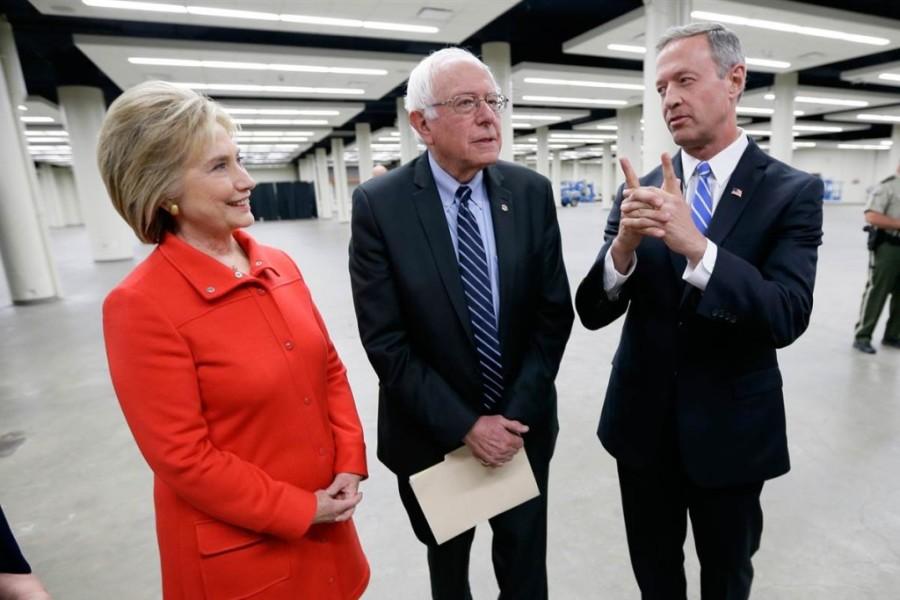The Second Democratic Debate: Business as Usual
December 23, 2015
On December 19, the Democratic National Convention held its 2nd debate for the national Democratic primary. These primaries will be held across the United States between February and June 2016. The recent debate was held at St. Anselm College in Goffstown, New Hampshire. The debate was an organized battleground of ideas and opinions on policy issues. The participants included former Secretary of State Hillary Clinton, Vermont Senator Bernie Sanders, and the former governor of Maryland Martin O’Malley.
One issue addressed during the debate was that one of Bernie Sanders’ staffers hacked into the confidential files of Hillary Clinton’s campaign, specifically to find information regarding voter support. This information could then be used by Senator Sanders to plan a more effective attack on the Clinton campaign. For example, since the electoral college implements a winner-take-all system, it is less risky to campaign in areas where there is less support for the independent candidate. Sanders denies any involvement in the hacking scandal and has recently fired the staffer who committed the act. The DNC initially suspended Sanders’ access to voter information regularly made available to all candidates, but they have removed this sanction due to no present data or information proving Senator Sanders was involved. Sanders handled the situation with great care and came away with very little damage taken to his campaign or reputation. The incident was definitively put to rest with Bernie Sanders apologizing to Hillary Clinton at the debate after he strategically brought up his forgiveness in her email scandal. This moved some of the negative light from himself to her past problems.
During the discussion, all three candidates brought up some major talking points of the Democrats: ISIS and how to solve the Syrian Civil War, health care, immigration reform, gun control, income inequality and the disappearing of the middle class, and finally college tuition and the college debt crisis. There was no clear solution of how to bring peace to Syria and limit the fighting in the region, but the Democrats are looking for an indirect fix of accepting Syrian refugees into the United States and pushing for other developed nations to focus on bringing in these refugees. As usual, all of the Democrats supported more gun control and making tougher gun regulations. However, income inequality was where the candidates were divided. Bernie Sanders followed his socialist ways of increasing taxes for all, directly decreasing wealth inequality. Clinton and O’Malley, however, plan to raise taxes on the rich and keep constant middle and lower class taxes. Both Clinton and O’Malley have huge Super PAC support and are funded by the wealthy, so it is undetermined how their policies will be influenced by these backers. They must avoid biting the hand that feeds them.
Overall it was a successful debate for all three candidates: Senator Sanders displayed his honesty and trustworthiness by apologizing about the hacking situation and also highlighted his key issue of wealth inequality, Secretary Clinton played clean politics by not exploiting the hacking and projected her standard political beliefs, and former Governor O’Malley did not gain many new supporters but did prove to be knowledgeable about the issues when being pressed by the other two candidates and the party. In most presidential primary and general debates, there is no clear winner. This holds true for this recent debate. All candidates held strong and displayed valid, innovative ideas. However, if I had to choose a winner, I would pick Bernie Sanders. He deflected negative light and gained more supporters even after he was initially portrayed as cheating and committing espionage. In conclusion, the debate was intense for everyone and did not cause a landslide in the Democratic presidential nomination. Only time will tell who comes out on top.


